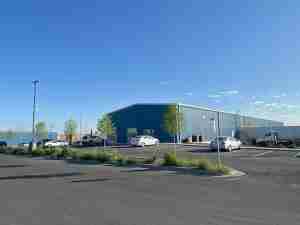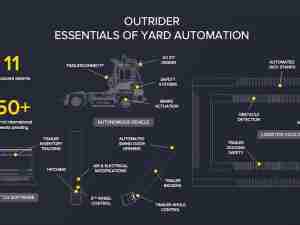CMAP Executive Director Aleman Testifies to Chicago’s nationally significant infrastructure needs, urging federal partner role
Washinton, DC - Addressing a joint subcommittee hearing of the House Committee on Transportation & Infrastructure, Chicago Metropolitan Agency for Planning (CMAP) Executive Director Erin Aleman testified calling for a minimum annual federal investment of $12 billion in our nation’s multimodal freight infrastructure. Setting the stage for 2020 reauthorization, she encouraged Congress to continue their support and oversight of the Act’s competitive grant programs like INFRA to ensure they are implemented in accordance with Congressional intent.
Aleman, a Member of the Coalition for America’s Gateways & Trade Corridors Board of Directors (CAGTC), represented both CMAP and the Coalition at the hearing before the Subcommittees on Highways and Transit and on Railroads, Pipelines, and Hazardous Materials titled, “Where’s My Stuff?: Examining the Economic, Environmental and Societal Impacts of Freight Transportation.” Pointing to the inextricable link between freight infrastructure investment and the long-term health of our national economy, Aleman stated, “We must focus on the system as a whole, rather than viewing our nation’s transportation infrastructure as several different systems that occasionally interact. We must think in terms of an entire network, interconnected and interdependent.”
CAGTC’s diverse geographic membership offers an often sought, authoritative voice on freight infrastructure representing the many modal needs across the spectrum. A strategic freight mobility program that prioritizes the current economic needs of our country is needed to improve the nation’s competitiveness and respond to a changing economy.
Highlights of Aleman’s testimony included long-held policy recommendations put forth by the Coalition, as follow:
The multimodal freight network directly supports 44 million jobs and impacts every American’s quality of life. More than 77 percent of U.S. freight crosses state lines, illustrating the need for a federal partner role in freight planning and investment. As national freight demands grow, so too does the stress on CMAP’s regional infrastructure. With one-fourth of the nation’s freight traffic and nearly half of all intermodal trains passing through Chicago, Aleman noted that as North America’s freight hub, the CMAP region lives these challenges daily.
- A national strategy is needed to guide long-term planning - A national “vision” and dedicated investment strategy that shapes and guides the nation’s freight infrastructure system with active coordination among states, regions and localities is needed.
- Funding must be dedicated, sustainable and flexible - Federal freight funding should incentivize and reward state and local investment and leverage the widest array of public and private financing.
- A set of merit-based criteria is needed for funding allocation - Projects should be selected through the use of merit-based criteria that identify and prioritize projects with a demonstrable contribution to national freight efficiency.
- A partnership with the private sector is needed to maximize federal efforts - Federal funding should leverage private participation and provide transportation planners with the largest toolbox of financing options possible to move freight projects forward quickly and efficiently.
- Oversight of existing freight programs is critical for decision-making transparency - Congress should oversee execution of the INFRA program to ensure projects are evaluated against criteria codified in law.
“We applaud the leadership and work of both subcommittees recognition of the inextricable link between our economy and a robust, dedicated program for multimodal freight,” said CAGTC Executive Director Elaine Nessle. “While the FAST Act made significant improvements in freight policy and programming, more is needed to make up for years of underinvestment and to prepare for growing system demands. Looking towards 2020 reauthorization, Congress must renew its commitment to manufacturers, retailers, and farmers, all of whom rely on the multimodal freight network to get goods to market.”








